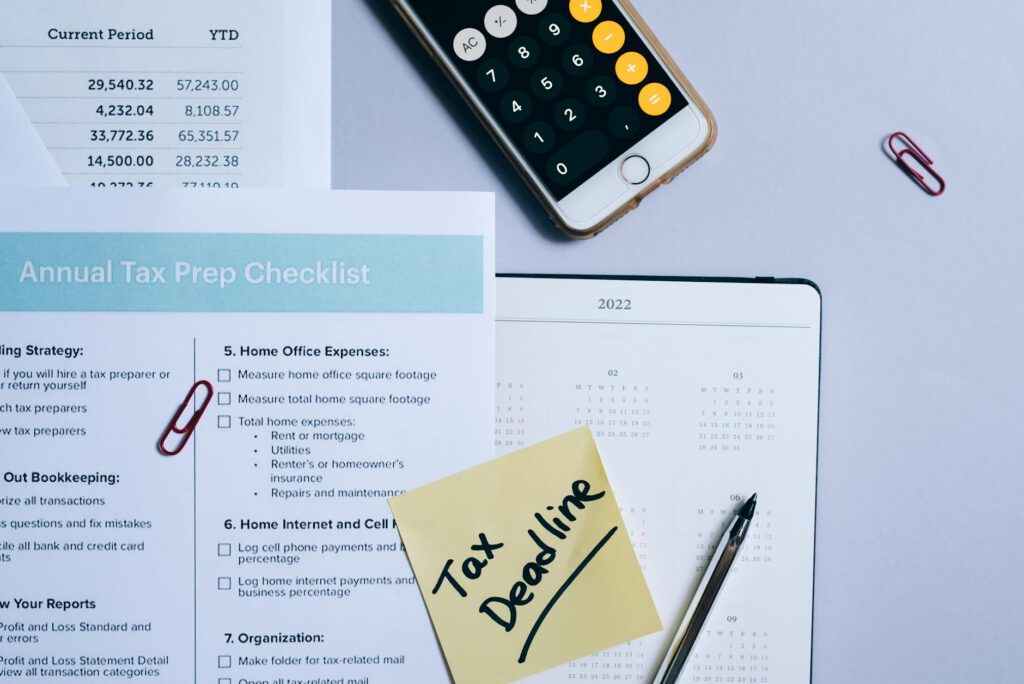****
As the year draws to a close, sole traders must shift their focus to tax preparation to ensure compliance, maximize deductions, and avoid last-minute stress. Proper planning can help you minimize liabilities, optimize cash flow, and set a strong financial foundation for the new year.
This comprehensive **** covers essential steps, deductions, tools, and strategies to streamline your tax obligations. Whether you’re a freelancer, consultant, or small business owner, this guide will help you stay organized and tax-efficient.
Main Idea: Why a Year-End Tax Review is Crucial for Sole Traders
Sole traders must manage their own taxes, meaning missed deadlines or overlooked deductions can lead to penalties or lost savings. A structured year-end review ensures:
- Accurate financial records – Avoid errors in income and expense reporting.
- Maximized deductions – Claim all eligible business expenses.
- Compliance with HMRC (or local tax authority) rules – Stay penalty-free.
- Better financial planning – Forecast next year’s tax liabilities.
Let’s break down the key steps to prepare for tax season.
1. Review Your Income and Expenses
Detail/Example
Start by reconciling all business transactions. Ensure every payment received (invoices, sales, deposits) and every business expense (receipts, subscriptions, equipment) is recorded.
Example: If you’re a freelance graphic designer, verify that all client payments (including late ones) are logged. Track software subscriptions (Adobe Creative Cloud, Canva Pro), office supplies, and travel costs related to client meetings.
Steps to Follow:
- Reconcile bank statements – Match transactions with accounting records.
- Categorize expenses – Separate business vs. personal costs.
- Check for missing receipts – Use digital tools (like Expensify or QuickBooks) to store proof of purchases.
2. Claim All Eligible Tax Deductions
Sole traders can reduce taxable income by claiming legitimate business expenses. Common deductions include:
Common Deductible Expenses:
- Home office costs – If you work from home, claim a portion of rent, utilities, and internet.
- Equipment & software – Laptops, printers, and business tools.
- Professional fees – Accountants, legal advice, and industry memberships.
- Travel & mileage – Business-related trips (keep a log).
- Marketing & advertising – Website hosting, social media ads, and business cards.
Pro Tip: If you use your car for work, track mileage using apps like MileIQ to claim accurate deductions.
3. Prepare for Self-Assessment Deadlines
Key Dates (UK – HMRC 2025 Deadlines):
- 5 October 2025 – Register for Self-Assessment (if new to sole trading).
- 31 October 2025 – Paper tax return deadline.
- 31 January 2026 – Online tax return deadline (and first payment on account).
Steps to File Accurately:
- Gather necessary documents – P60s, invoices, expense receipts, and bank statements.
- Use HMRC-compatible software – QuickBooks, Xero, or FreeAgent.
- Double-check figures – Ensure income and expenses match bank records.
- Submit early – Avoid last-minute errors or late penalties.
4. Plan for Tax Payments (Including Payments on Account)
Sole traders in the UK must make Payments on Account—advance tax payments towards next year’s bill.
How It Works:
- First Payment on Account – Due by 31 January (50% of previous year’s tax bill).
- Second Payment on Account – Due by 31 July (another 50%).
Example: If your 2024-25 tax bill was £5,000, you’ll pay:
– £2,500 by 31 January 2026
– £2,500 by 31 July 2026
Strategy: Set aside 20-30% of income monthly to cover future tax bills.
5. Consider Pension Contributions
Paying into a pension reduces taxable income while securing retirement savings.
How It Helps:
- Tax relief – Contributions are deducted from taxable profits.
- Long-term growth – Invest in a SIPP (Self-Invested Personal Pension).
Tip: Contribute before the tax year ends (5 April) to maximize relief.
6. Review Your Business Structure (Is Sole Trading Still Best?)
As your business grows, switching to a limited company may offer tax advantages:
Sole Trader vs. Limited Company:
| Factor | Sole Trader | Limited Company |
|———————|———————-|———————-|
| Tax Rate | 20-45% (Income Tax) | 19-25% (Corporation Tax) |
| Liability | Personal liability | Limited liability |
| Admin | Simpler | More complex (accounts, filings) |
Consult an accountant to assess if incorporation benefits you.
Tools & Resources for Sole Traders
Accounting Software:
- QuickBooks – Tracks income/expenses, generates reports.
- FreeAgent – Designed for freelancers, integrates with HMRC.
- Xero – Cloud-based, scalable for growing businesses.
Receipt & Mileage Trackers:
- Expensify – Scan and store receipts.
- MileIQ – Log business mileage automatically.
Tax Calculators:
- HMRC’s Self-Assessment Calculator – Estimate tax due.
- MoneySavingExpert’s Tax Calculator – Compare sole trader vs. limited company.
FAQs: Year-End Tax Questions for Sole Traders
1. Can I claim my mobile phone as a business expense?
Yes, if used for work. If also for personal use, claim only the business portion.
2. What if I miss the Self-Assessment deadline?
Late filings incur penalties:
– £100 fine if 1 day late.
– Additional daily charges after 3 months.
3. How do I reduce my tax bill legally?
- Claim all allowable expenses.
- Contribute to a pension.
- Use tax-efficient business structures.
4. Should I hire an accountant?
If your finances are complex, an accountant can save you money by maximizing deductions and ensuring compliance.
Conclusion: Stay Proactive for a Stress-Free Tax Season
A well-organized year-end tax review helps sole traders avoid penalties, optimize savings, and plan for future growth. By following this checklist—tracking income/expenses, claiming deductions, meeting deadlines, and considering pension contributions—you’ll enter 2026 with confidence.
Action Step: Block time this week to review your finances. Use digital tools to automate record-keeping, and consult a tax professional if needed. The sooner you start, the smoother tax season will be.
By implementing these strategies, sole traders can navigate tax obligations efficiently while keeping more of their hard-earned money. Stay informed, stay compliant, and set yourself up for financial success in 2025 and beyond.

